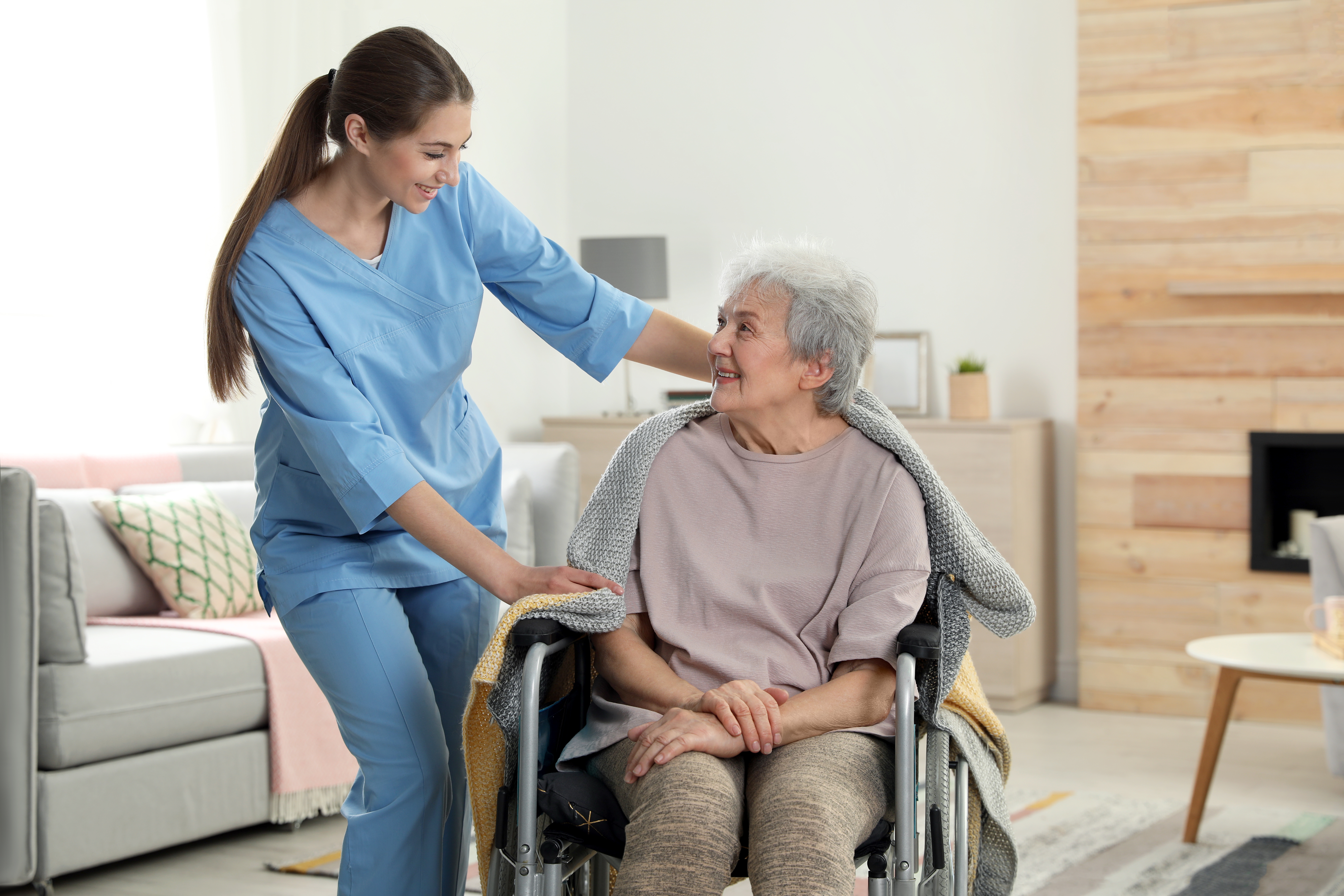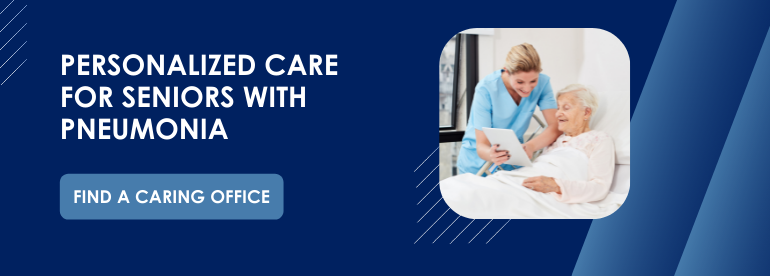A pneumonia diagnosis can feel overwhelming for a senior and their families. This lung infection can be life threatening and symptoms can linger for months in seniors, who naturally have weaker immune systems than younger adults. Seniors may spend time recovering in the hospital, where they receive round-the-clock medical attention. But once a senior has healed well enough to leave the hospital, they are discharged to continue the rest of their recovery. Instead of being discharged to a nursing home or other long-term care facility, seniors can recover at home with proper care and support from in-home caregivers.
Caregivers can provide extra care to ensure a senior’s safe recovery and to ensure that the infection doesn’t spread. And here’s how.
Helping Seniors Recuperate from Pneumonia
Ensure Proper Nutrition
A senior with pneumonia may not have an interest in eating, but it's essential for their recovery. Proteins help the body rebuild damaged respiratory cells. Carbohydrates provide the energy your loved one needs to fight the feelings of fatigue associated with pneumonia. And other nutrients are required to boost the immune system and keep all bodily systems functioning properly.
Because a senior with pneumonia will likely be fatigued, they will need some help in the kitchen. A caregiver can help plan and prepare healthy meals that sound good. They can also do grocery shopping to make sure the fridge and pantry remain stocked.
Assistance in the kitchen can also extend to food safety so that your loved one isn’t exposed to food-borne illness as they recover. Caregivers can help clean out the fridge, freezer, and pantry of expired foods. They can also help sanitize the kitchen to reduce the chance of spreading infection.
Monitor Medications
Medication schedules can get complicated. And seniors who are recovering from pneumonia may have a lot of prescription medications. While pillboxes and phone reminders can be a great help, seniors might not be able to take their medications on their own and you may not always be available to assist your loved one. Getting medication reminders from a professional caregiver can be a great solution to ensure that seniors take their medications on time and in the proper dosage.
Push Fluids
In addition to maintaining a healthy diet, it's important for seniors to remain hydrated during recovery. Water helps the body get rid of toxins and waste, hydrate cells, digest food, and more. Generally, men should get about 15.5 cups of water each day and women should drink 11.5 cups each day. Professional caregivers can remind your senior to drink water often and/or a variety of liquids. They can also assist them in taking drinks of water, which may be laborsome while recovering from pneumonia.
Maintain Personal Hygiene
Good hygiene is crucial for seniors to avoid contracting other infections and illnesses as they recover. But seniors may not be able to perform personal care activities on their own as they battle pneumonia. Caregivers can help seniors shower, brush their teeth, use the restroom, and perform other personal care tasks. This can all help keep a senior and their family healthier. Additionally, these activities can help a senior feel more like themselves and provide a boost to their mental health.
Provide Companionship
At home, a senior may need monitoring to make sure they are on the path to recovery. A caregiver can closely monitor a senior and provide them with companionship, which can help them fight off feelings of isolation and depression. During this time, caregivers can engage the senior in activities like reading books, watching movies, talking, playing games, and more. This helps stimulate the mind and pass the time. Companionship can also provide family members with peace of mind because they know someone is tending to their loved one.
This companionship can also extend to doctor’s appointments. Caregivers can provide transportation to the appointment and remain with a senior throughout the appointment. They can also take notes, ask questions, or communicate anything on behalf of a senior’s family.
Disinfect the Home
Depending on the type of pneumonia, seniors may be able to spread infection to other members of the family. Caregivers can help clean the home by disinfecting commonly touched surfaces (doorknobs, remote control, faucets, light switches, etc.), washing linens regularly, and adhering to other infection control practices.
Even if your loved one’s case of pneumonia isn’t contagious, it’s still a good idea to disinfect the home regularly to help ensure that your senior doesn’t catch another infection while their immune system is already weak.
Conclusion
Ultimately, the road to pneumonia recovery can be a long and arduous one. When a senior is released from the hospital, they are vulnerable and may require constant care and assistance. That’s why we are here to help!
Caring Senior Service provides professional caregivers to help reduce the strain on family members and increase the quality of life for seniors struggling with health challenges. Our caregivers receive pneumonia-specific training, so they are equipped for anything your loved one needs. Reach out to the Caring team near you today!


